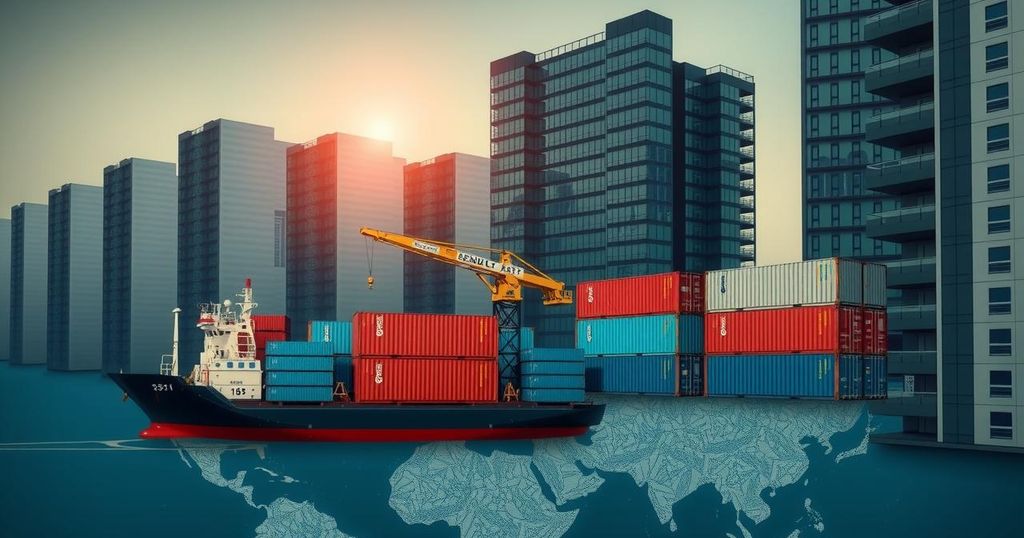China Responds with Tariffs After U.S. Imposes New Levies
China has retaliated against U.S. tariffs by imposing levies on American imports, including coal, LNG, and agricultural goods. Concurrently, China launched an investigation into Google and restricted exports of essential metals. Trump’s administration has temporarily halted tariffs on Mexico and Canada, prompting discussions of border security. EU leaders express caution regarding trade tensions, while U.S.-China relations remain complicated.
China has enacted tariffs in direct retaliation to recently imposed U.S. levies, escalating tension between the two economic giants. An additional 10% tariff on all Chinese imports to the United States took effect early Tuesday. In response, China assigned a 15% tariff on U.S. exports of coal and liquefied natural gas (LNG), and a 10% tariff on crude oil and agricultural equipment.
Furthermore, China has initiated an anti-monopoly investigation targeting Google and proposed sanctions against U.S. companies such as PVH Corp and Illumina. The Chinese government also imposed controls on the export of certain metals crucial for technology and defense sectors. These tariffs, set to commence on February 10, highlight China’s strategy to patiently address ongoing trade disputes with the U.S., despite the severity of U.S. measures.
President Trump has temporarily paused the implementation of significant tariffs on Mexico and Canada, allowing for a one-month respite after obtaining promises of increased border enforcement measures. Canada plans to enhance border security with advanced technology and personnel, while Mexico will deploy National Guard troops to deter illegal migration and drug trafficking.
Amid these developments, European Union leaders expressed apprehension regarding the potential onset of a trade war with the United States, while also advocating for negotiation as a way forward. Trump has indicated his willingness to discuss matters with Chinese President Xi Jinping in hopes of de-escalating tensions, yet concerns over the prospect of ongoing tariffs remain prevalent.
The current trade relations between China and the United States are strained due to a series of tariff impositions initiated by the Trump administration, primarily aimed at correcting perceived trade imbalances. Historically, these tariffs have spurred retaliatory measures from China, marking the continuation of trade friction. Thus, both nations are engaged in an economic standoff, with goods worth billions subject to fluctuating tariffs, impacting industries globally. The economic implications are profound, with analysts warning of potential disruptions in supply chains and consumer prices.
The tit-for-tat tariff scenario between China and the United States remains contentious, with each country employing strategic responses to the other’s trade policies. The temporary pause on tariffs with Mexico and Canada signifies Trump’s approach to bilateral relations, contrasting sharply with his dealings with China. This ongoing economic friction underscores a complex global trade landscape, one that might evolve further with upcoming negotiations.
Original Source: www.hindustantimes.com




Post Comment